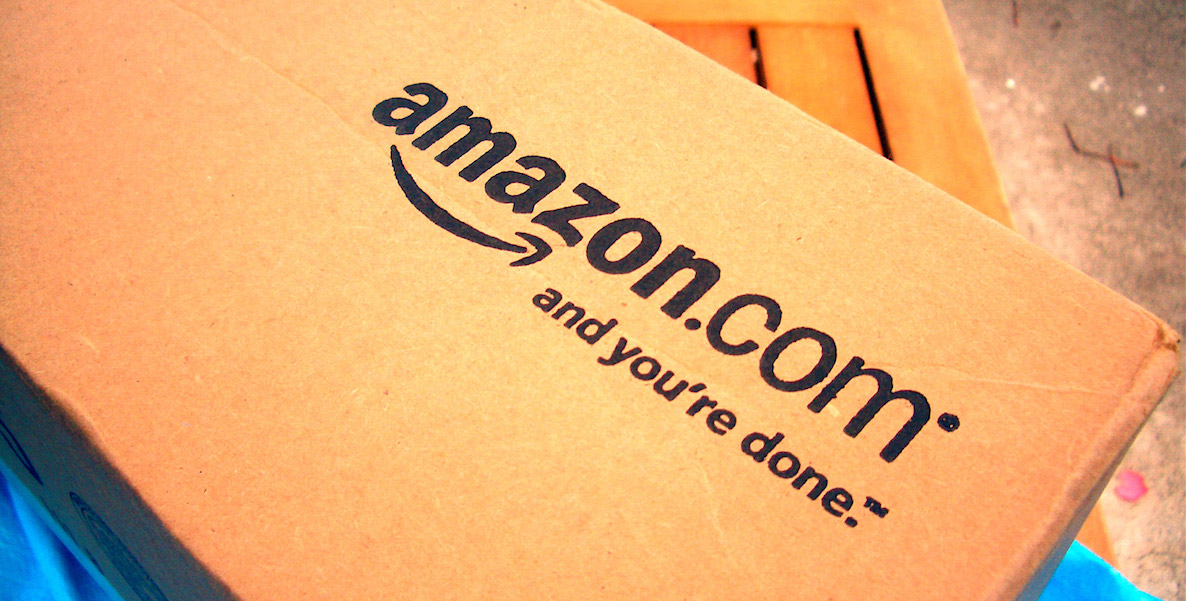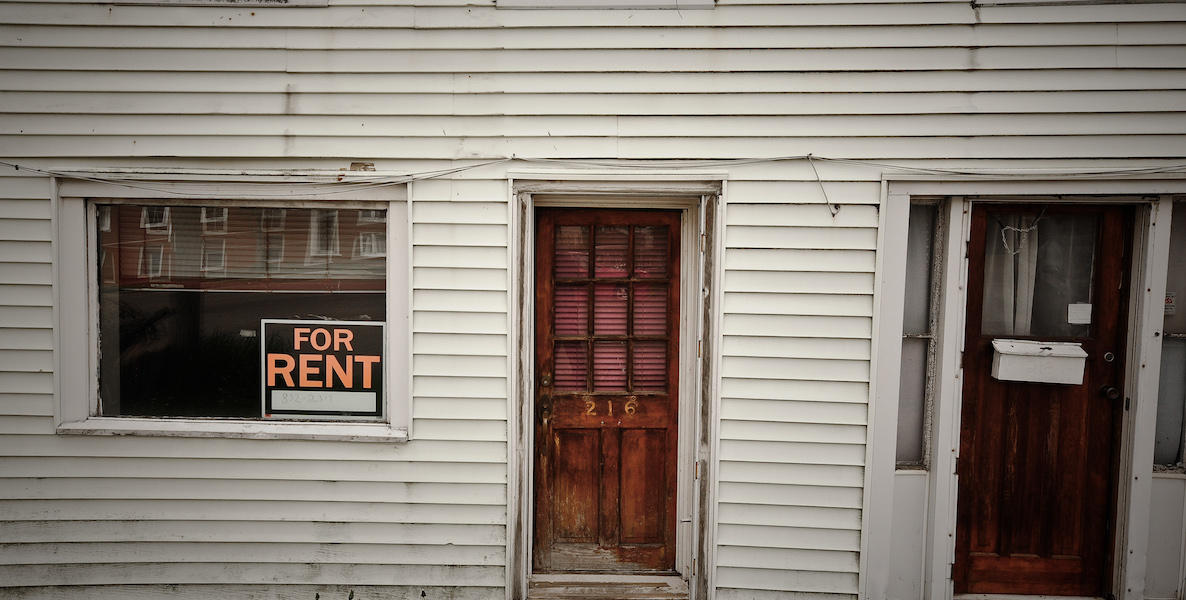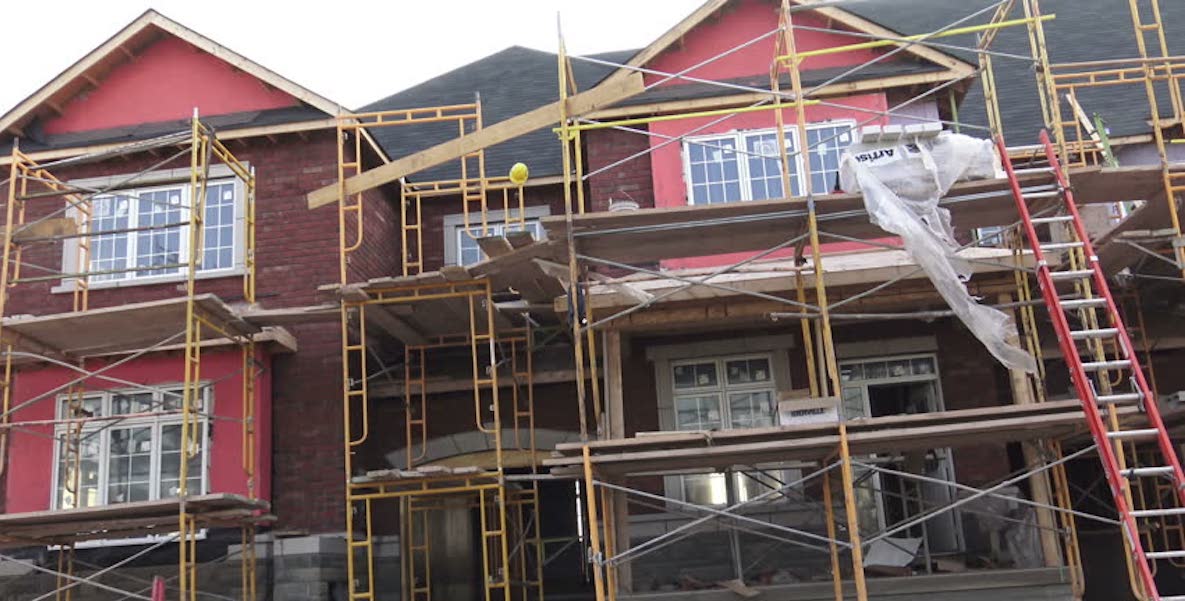As Philadelphia City Council struggles over whether to pass a “Good Cause” tenants bill—or the lengths to which they’ll amend it to appease assorted real estate developers, landlords and slumlords, too—there’s not much urgency over just how deep the city’s now generations-long rental crisis really is.
Real talk, Philly tenants need more than just sympathetic eviction legislation. It’s more like Root Cause law is needed to truly fix the sordid, struggling state of low-income renters in the city.
Be Part of the Solution
Become a Citizen member.This is where the oft-uttered and over-used activist buzz-phrase “affordable housing” falls short —since nearly half the city, based on recent Census data, rents. To most, an actual owned house is merely nocturnal dream or the occasional holiday visit to someone who owns one. Yet, the “affordable housing” construct gives all the impression that only people who’ve bought houses, along with those who’ve lost or wanted and can’t quite afford them, matter.
As a result, misplaced emphasis and emergency response seems disproportionately tilted towards the mortgage owners as opposed to the tenants. This is the problem, for example, with post-disaster response in the climate ravaged world we live in: There’s an expectation FEMA will care for everyone, but FEMA, by mission, only cares for the homeowners. Renters find themselves a castigated lot.
In Philly, what holds many residents back is a stubborn “affordable living” crisis, accentuated by not only a steady rise in monthly crib note, but the creeping increase in the cost of living as well, in what was once something of a reliable oasis for cheaper quality living. While, of course, there have been benefits to city image and economy as the real estate boom continues, relentless un(tax)abated development persists mercilessly with no end in sight and many left (sometimes deliberately, by design) behind.
Evictions are simply a symptom of a larger chronic disease known as the rental crisis. The prognosis doesn’t look all that good, and few—if any—city lawmakers are making any big stands about it while, frankly, piddling about on the issue of evictions … as if really doing something about it.
That has unleashed an affordable living crisis in the city—as in most American cities. Philly is still affordable compared to, say, Gentrizilla West Coast cousin San Francisco or bigger Northeast brother New York. We might have once prided our grungy, working class town selves on our “little guy” austerity, but the city’s inability and general lack of willingness to temper the trajectory of rising rents is making Philly less unique in that regard.
It’s when tragedy hits, such as the completely avoidable loss of four lives in a North Philly slumlord’s illegally rented boarding house, that a city long accustomed to and perpetuating its poverty, finally pays some attention. But had urgency been placed on the city’s unhinged rental crisis in the first place, perhaps there’d be no fire and no loss of life. Perhaps struggling residents would not constantly find themselves thrown into impossible situations; trapped between rent and bills and the general cost of living, some must swallow dangerous living conditions or face eviction notices sooner than not.
This is clearly an unsustainable condition. Median city rent is somewhere in the $1,200/month range, thereby imposing an annual $14,400 cost on the median Philly household income of $41,233—which means the average Philadelphian is spending nearly 35 percent of their annual income on rent, and rent alone. That’s less money for a lot of essential things: Like transportation (an average $6,600 annually for one city resident, according to the Economic Policy Institute’s trusty family budget calculator), with more spent the farther away jobs are. Or food (an average $3,200 for one) and health care (an average $4,300 for one). And stop, fam, we didn’t even put kids in the equation above, so you can only imagine, right?
But, when a city is winning championships, and taking back school districts, and snarking back at the Donald Trumps of the world, and owning its sanctuary city self as if it’s truly a People’s Warrior, it casually forgets that it’s only second to Detroit on a list of Top 10 cities where renters are paying at least 30 percent of their income in rent. In Philly, that’s nearly 60 percent of the renting population that does that. So, naw, Philly, you’re not all that special. You keep beating up your poor.
![]() Evictions are simply a symptom of a larger chronic disease known as the rental crisis. The prognosis doesn’t look all that good, and few—if any—city lawmakers are making any big stands about it while, frankly, piddling about on the issue of evictions … as if really doing something about it. Yet, nothing holds back the city’s landlords from chaining low-income tenants to unbearable leases; as Zillow Research shows, vulnerable tenants in Philly dole out nearly 60 percent of their income on just the rent, compared to only 22 percent for middle-income earners and just 13.2 percent for high-income earners. This despite the National Low Income Housing Coalition’s warning that more than $46,000 is the actual annual income needed to maintain a two-bedroom at “fair market rent.”
Evictions are simply a symptom of a larger chronic disease known as the rental crisis. The prognosis doesn’t look all that good, and few—if any—city lawmakers are making any big stands about it while, frankly, piddling about on the issue of evictions … as if really doing something about it. Yet, nothing holds back the city’s landlords from chaining low-income tenants to unbearable leases; as Zillow Research shows, vulnerable tenants in Philly dole out nearly 60 percent of their income on just the rent, compared to only 22 percent for middle-income earners and just 13.2 percent for high-income earners. This despite the National Low Income Housing Coalition’s warning that more than $46,000 is the actual annual income needed to maintain a two-bedroom at “fair market rent.”
But, there is no fair market in Philly. Basically, the less money you make, City of (No)Love punishes you for desperately needing a roof over your family’s head. That is, as Zillow calls it, the “slippery slope” towards eviction or finding one’s self forced into choosing sub-standard, slumlorded housing, as residents at 1855 N. 21st Street, unfortunately, decided to do.
To avoid worsening an already worsened situation, Philly requires a dramatic change in mindset on this issue. Policymakers really should take a look at what Berlin did with its “rental brake” laws. It even went a step further, as CityLab observes, with “national Community Defense laws that allow it to pinpoint areas where rents are rising especially fast and forbid luxury conversions that would otherwise give landlords a legal right to raise rents. The city has also banned vacation rentals in some places to prevent much needed permanent accommodation from seeping away from the rental market.”
The city can’t keep band-aiding its rental crisis and also feeding the mythology that all renters will, eventually, someday end up in a home of their dreams. Let’s figure out an innovative way to better the current situation and truly blend equity as opposed to window-dressing it with promises of “fair housing” and “rent controls” and “tenant rights” that aren’t even enforced completely.
More importantly, it’s time to view the issue as not just “tenant rights.” Doing so has the unintended effect of confining or segregating it as a civil rights issue when it’s more; it’s a critical, broken piece of the city’s economic fabric. Philly needs to fully accept the reality that nearly half its population rents, and that it will remain that way. The city can’t keep band-aiding its rental crisis and also feeding the mythology that all renters will, eventually, someday end up in a home of their dreams. Let’s figure out an innovative way to better the current situation and truly blend equity as opposed to window-dressing it with bullshit promises of “fair housing” and “rent controls” and “tenant rights” that aren’t even enforced completely.
In addition, should the city consider a much more aggressive and central rental subsidy regime managed by a central “Tenants Administration,” an all-in-one agency that identifies and assesses low-income individuals who are paying more than 40 percent of their income in rent? Consider a monthly sliding-scale rent-linked subsidy that takes care of other crucial costs like transportation, food and child care, but do it in such a way that’s less complex, that’s much more ambitious and is directly linked to the improvement of the citywide economy and population.
A full-scale and centralized Tenants Administration model consolidates all city activities into one massive corps-like effort in which the low-income Philly tenant dedicating more than 40 percent of their income on rent can access a full-suite of services. That approach forces the city to better manage and address the rental crisis as opposed to the scattered piecemeal case-by-case and emergency approach whereby tenants are only utilizing services when all fails; by that time, it’s already too late.
![]() Brookings’ Jenny Schuetz floats rent subsidy on an academic track while studying rising rent trends that are crushing low-income rental families. “Several features of current housing policies could be changed to better support low-income families,” notes Schuetz, who spoke to WURD’s Reality Check some months ago. “The most direct policy solution is thus to maintain the income supplement programs which have filled the gap for many renters, and provide targeted expansions of successful programs, such as the EITC.” But with so many in the city spending close to 60 percent of their income, we should ask if that really is enough?
Brookings’ Jenny Schuetz floats rent subsidy on an academic track while studying rising rent trends that are crushing low-income rental families. “Several features of current housing policies could be changed to better support low-income families,” notes Schuetz, who spoke to WURD’s Reality Check some months ago. “The most direct policy solution is thus to maintain the income supplement programs which have filled the gap for many renters, and provide targeted expansions of successful programs, such as the EITC.” But with so many in the city spending close to 60 percent of their income, we should ask if that really is enough?
Obviously, the city may not have an appetite for administering yet another major social program or project. Which is why it’s time for Philadelphia to consider that it’s probably not addressing its rental crisis smartly; rather than tackling it at the end, throwing money at evictions in a last-ditch effort to reduce such, focus on in from before start-of-lease issues that led to that point in the first place. Evictions, clearly, are linked to low income and lack of access to job opportunities. Any legislation posing itself as a fix has to include a jobs-based solution.
City Council nibbles around the edges of Philly’s clear and present affordable living crisis. Simply slimming criteria for eviction in a bid to slow it down does very little for citywide eviction rates (averaging 7 percent annually), which are naturally triggered by perpetually impoverished and rent oppressive Philly.
In some ways, Bill No. 170854 might possess the look of good intentions, but is it truly radical in its undertaking? Does it truly extinguish the blazing road to hell that defines so much wretched Philly living? Those making less than $25,000 still experience eviction rates quadruple those who earn much more because, of course, they’re spending nearly three-quarters of their income just for the roof. Good Cause, then, becomes nothing other than a good political show.
Charles D. Ellison is Executive Producer and Host of “Reality Check,” which airs Monday-Thursday, 4-7 p.m. on WURD Radio (96.1FM/900AM). Check out The Citizen’s weekly segment on his show every Tuesday at 6 p.m. Ellison is also Principal of B|E Strategy, the Washington Correspondent for The Philadelphia Tribune and Contributing Politics Editor to TheRoot.com. Catch him if you can @ellisonreport on Twitter.
Photo: bill lapp via Flickr






